In the “Huangdi Neijing” (Yellow Emperor’s Inner Canon), it is stated: “The waist is the residence of the kidneys; if it cannot move, the kidneys will be exhausted.”The kidneys govern the bones and produce marrow. When kidney essence is deficient, the waist and spine lose nourishment, leading to soreness and weakness, with pain that is persistent, worsening with exertion and alleviating with rest, preferring gentle massage and rejecting forceful pressure. Therefore, chronic lower back pain, also known as lumbar strain, is often due to congenital insufficiency, excessive postnatal labor, prolonged illness, aging, or irregular sexual activity, resulting in kidney essence deficiency, which fails to nourish the waist and spine, causing pain.Food and medicine share a common source, and there is no absolute boundary between them; many foods have therapeutic functions and can also be used as dietary items. Throughout history, physicians have emphasized this point, using appropriately matched medicinal dishes to achieve disease prevention and treatment.Based on the different causes of lumbar muscle strain, Dr. Qu Chongzheng, Director of the Acupuncture and Tuina Department at the Third Affiliated Hospital of Guangzhou University of Chinese Medicine, recommends the following dietary therapy recipes for your reference.Kidney Yin DeficiencyClinical Manifestations:Soreness in the lower back, varying in intensity, worsening with exertion, alleviating with rest, slight limitation in movement with tenderness, dry mouth and throat. The tongue is tender red, with little coating, and the pulse is thin and rapid.Shu Di Huang (Rehmannia) and Huang Jing (Polygonatum) Beef Tendon Soup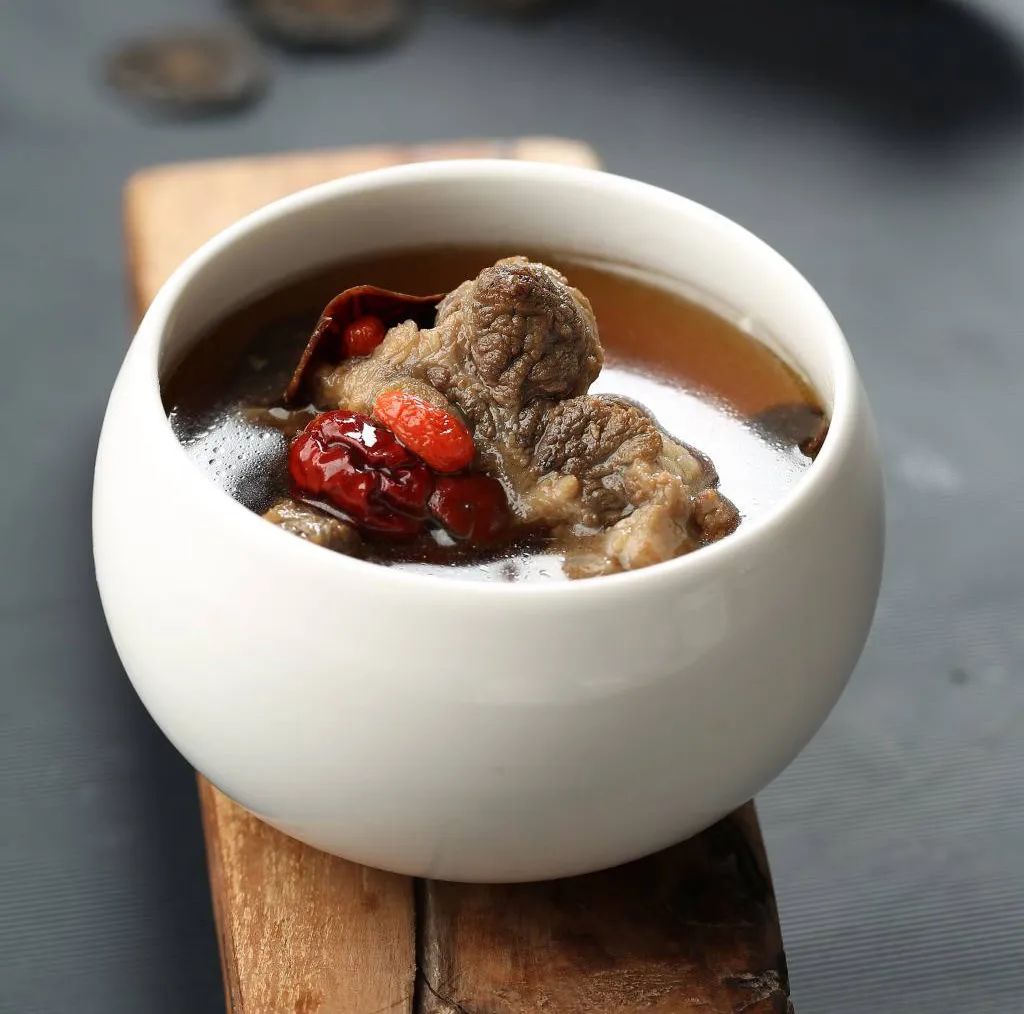 【Efficacy】 Nourishes Yin, tonifies the liver and kidneys, strengthens tendons and bones, and helps alleviate lower back soreness due to kidney Yin deficiency.【Ingredients】 20g Shu Di Huang, 20g Huang Jing, 100g dried beef tendon.
【Efficacy】 Nourishes Yin, tonifies the liver and kidneys, strengthens tendons and bones, and helps alleviate lower back soreness due to kidney Yin deficiency.【Ingredients】 20g Shu Di Huang, 20g Huang Jing, 100g dried beef tendon.
【Preparation】 First, clean the dried beef tendon and soak it until soft. Then, place it together with the cleaned herbs, Shu Di Huang and Huang Jing, into a stewing pot, add an appropriate amount of water, and stew over low heat for about 3 hours. Season with oil and salt. Consume the beef tendon and drink the soup once every other day.
Nu Zhen Zi (Ligustrum) and Du Zhong (Eucommia) Pork Backbone Soup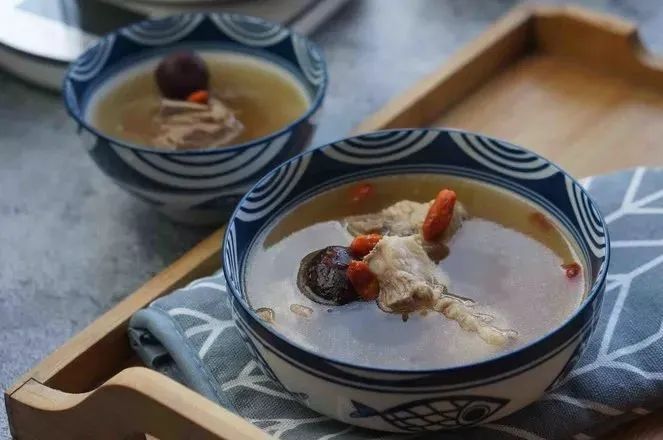 【Efficacy】 Nourishes the liver and kidneys, strengthens tendons and bones, and helps alleviate symptoms such as weakness and soreness in the lower back and knees due to liver and kidney deficiency.【Ingredients】 15g Nu Zhen Zi, 20g Du Zhong, 15g Shan Zhu Yu (Cornus), 500g pork backbone.
【Efficacy】 Nourishes the liver and kidneys, strengthens tendons and bones, and helps alleviate symptoms such as weakness and soreness in the lower back and knees due to liver and kidney deficiency.【Ingredients】 15g Nu Zhen Zi, 20g Du Zhong, 15g Shan Zhu Yu (Cornus), 500g pork backbone.
【Preparation】 First, clean and chop the pork backbone, then place it together with the cleaned herbs, Nu Zhen Zi, Du Zhong, and Shan Zhu Yu, into a stewing pot, add an appropriate amount of water, and stew over low heat for about 3 hours. Season with salt. Consume the meat and drink the soup once every other day.
Kidney Yang Deficiency
Clinical Manifestations: Cold and aching pain in the lower back, frequently recurring, worsening after exertion, alleviating with rest, aversion to cold and preference for warmth, with a bland taste in the mouth. The tongue is pale and swollen, with a white coating, and the pulse is deep and thin.
Rou Gui (Cinnamon) and Ba Ji Tian (Morinda) Lamb Soup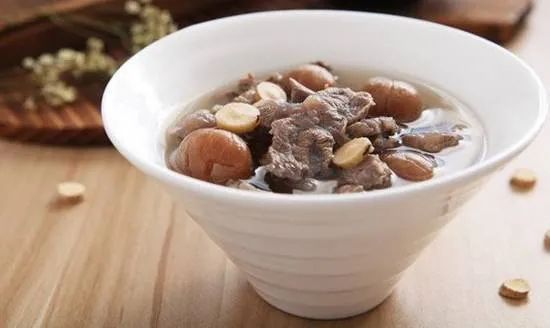
【Efficacy】 Warms and tonifies kidney Yang, strengthens tendons and bones, and can alleviate discomfort such as lower back pain and weakness in the knees due to kidney Yang deficiency.
【Ingredients】 10g Rou Gui, 15g Ba Ji Tian, 15g Du Zhong, 15g Gou Qi Zi (Goji Berries), 300g lamb.
【Preparation】 First, clean and chop the lamb, then place it together with the cleaned herbs, Rou Gui, Ba Ji Tian, and Gou Qi Zi into a stewing pot, add an appropriate amount of water, and stew over low heat for about 2 hours. Season with salt. Consume the meat and drink the soup twice a week.Lu Rong (Deer Antler) Chicken Soup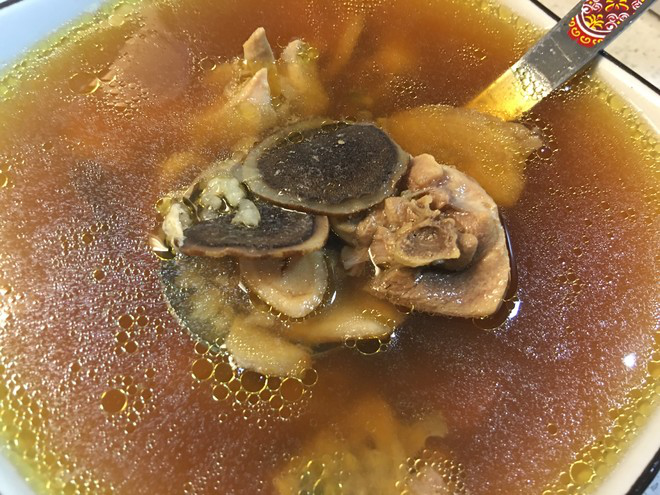
【Efficacy】 Tonifies kidney Yang and benefits kidney essence, which is helpful in alleviating discomfort such as cold intolerance and weakness in the lower back and knees due to kidney Yang deficiency.
【Ingredients】 10g Lu Rong, 300g chicken.
【Preparation】 First, clean and chop the chicken, then place it together with the cleaned herb, Lu Rong, into a stewing pot, add an appropriate amount of water. Stew over low heat for about 2 hours. Consume the meat and drink the soup twice a week.Wind-Cold-Damp TypeClinical Manifestations: Dull pain in the lower back, frequently recurring, worsening with exertion and changes in weather, with aversion to cold. The tongue is pale, with a white coating, and the pulse is thin.Qian Nian Jian (Hedyotis) and Du Zhong Lean Meat Soup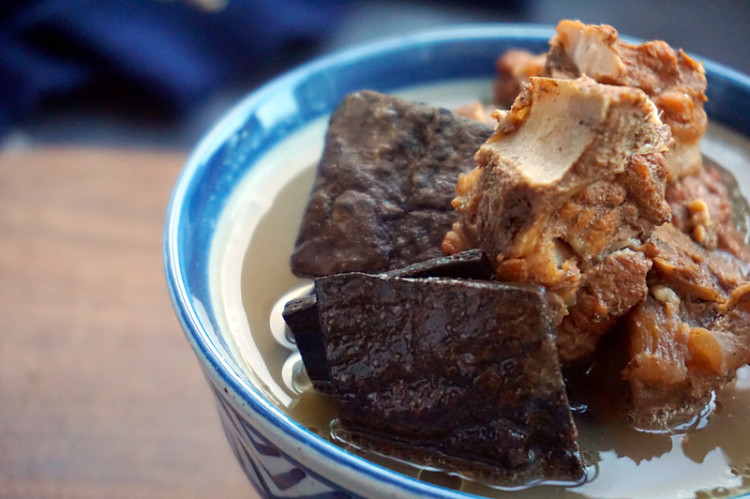
【Efficacy】 Dispels wind and dampness, strengthens tendons and bones, and helps alleviate lower back soreness and cold intolerance caused by invasion of wind-cold-dampness.
【Ingredients】 15g Qian Nian Jian, 15g Du Zhong, 10g Chen Pi (Dried Tangerine Peel), 200g lean meat.
【Preparation】 First, clean and chop the lean meat, then place it together with the cleaned herbs into a stewing pot, add an appropriate amount of water, and stew over low heat for about 2 hours. Season with salt. Consume the meat and drink the soup twice a week.Gui Zhi (Cinnamon) and Ba Ji Tian (Morinda) Pork Rib Soup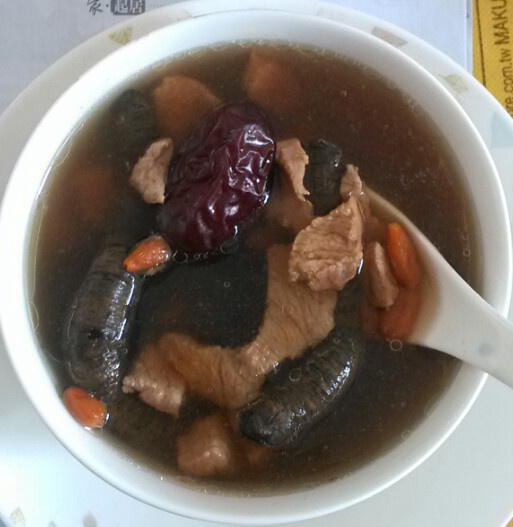
【Efficacy】 Dispels wind, scatters cold, and alleviates dampness and pain, which can relieve lower back pain and cold intolerance caused by wind-cold-dampness invasion.
【Ingredients】 15g Gui Zhi, 15g Ba Ji Tian, 3g pepper, 250g pork ribs.
【Preparation】 Clean and chop the pork ribs, then place them together with the cleaned herbs, Gui Zhi, Ba Ji Tian, and pepper into a stewing pot, add an appropriate amount of water, and stew over low heat for about 2 hours. Season with oil and salt. Consume the meat and drink the soup twice a week.■【Source: Third Affiliated Hospital of Guangzhou University of Chinese Medicine, Medical Guidance: Qu Chongzheng, Director of Acupuncture and Tuina Department, Associate Chief Physician】
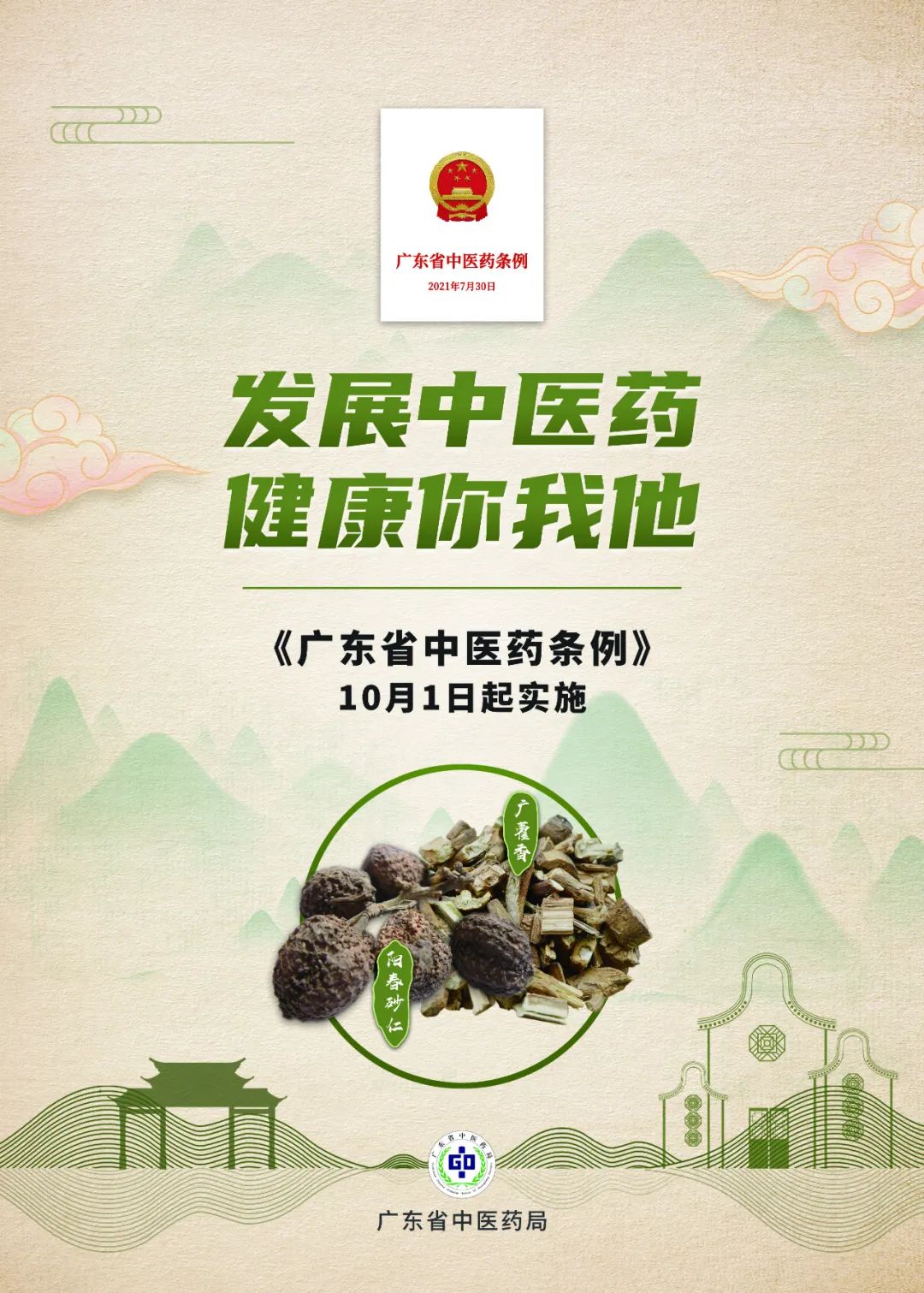
Recommended Reading





